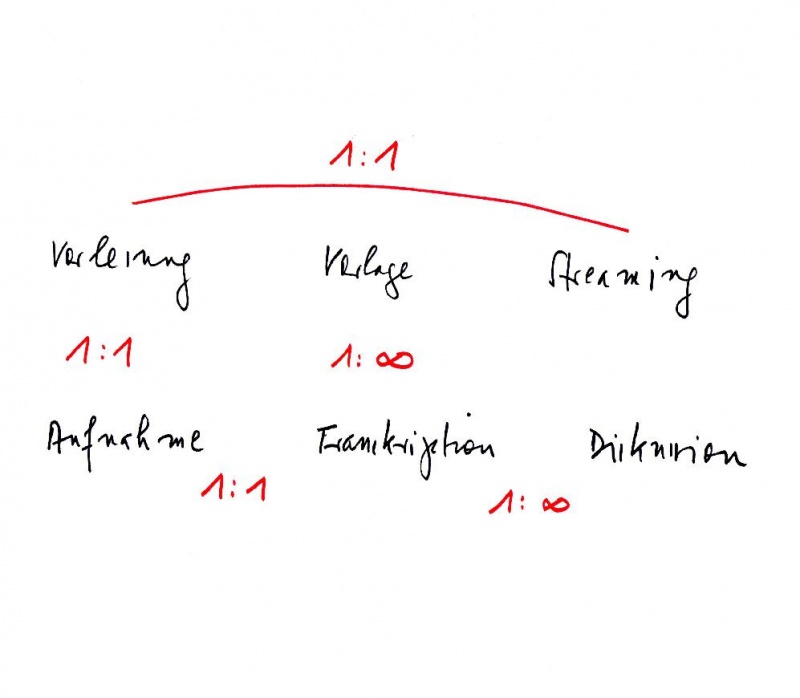Motive (mse): Unterschied zwischen den Versionen
Anna (Diskussion | Beiträge) K (→Open Access: add) |
Anna (Diskussion | Beiträge) K (levels) |
||
| Zeile 1: | Zeile 1: | ||
| − | + | = Eine verkehrte Welt = | |
| − | |||
'''Eric A. Havelock: Preface to Plato. Cambridge, Mass. 1963. Harvard University Press. (S.134f)''' | '''Eric A. Havelock: Preface to Plato. Cambridge, Mass. 1963. Harvard University Press. (S.134f)''' | ||
| Zeile 16: | Zeile 15: | ||
formed itself on a special 'poetic' basis. On thecontrary, it is only in preserved and significant speech, with a life of its own, that the maximum of meaning possible to a cultural state of mind is developed. Epic, despite its lightly esoteric vocabulary (actually, because of this vocabulary), represented significant speech, and it had no prosaic competitor. The Homeric state of mind was therefore, it could be said, the general state of mind. | formed itself on a special 'poetic' basis. On thecontrary, it is only in preserved and significant speech, with a life of its own, that the maximum of meaning possible to a cultural state of mind is developed. Epic, despite its lightly esoteric vocabulary (actually, because of this vocabulary), represented significant speech, and it had no prosaic competitor. The Homeric state of mind was therefore, it could be said, the general state of mind. | ||
| − | + | = Die alte Ordnung = | |
{| | {| | ||
| Zeile 26: | Zeile 25: | ||
|} | |} | ||
| − | + | = Verschwimmen = | |
{| | {| | ||
| Zeile 34: | Zeile 33: | ||
[[Bild:verschwimmen.JPG|800px]] | [[Bild:verschwimmen.JPG|800px]] | ||
| − | + | = Bruchstellen = | |
| Zeile 41: | Zeile 40: | ||
|} | |} | ||
| − | + | = Orientierungspunkte = | |
| − | + | == Gesang == | |
| Zeile 79: | Zeile 78: | ||
<flashmp3>http://131.130.46.67/wiki_stuff/camping.mp3</flashmp3> | <flashmp3>http://131.130.46.67/wiki_stuff/camping.mp3</flashmp3> | ||
| − | + | == Intertextualität == | |
<pre> | <pre> | ||
| Zeile 133: | Zeile 132: | ||
|} | |} | ||
| − | + | == Open Access == | |
| Zeile 146: | Zeile 145: | ||
|} | |} | ||
| − | + | = Ein Fallbeispiel = | |
---- | ---- | ||
[[Kategorie: mündlich, schriftlich, elektronisch]] | [[Kategorie: mündlich, schriftlich, elektronisch]] | ||
Version vom 4. März 2011, 10:22 Uhr
Inhaltsverzeichnis
Eine verkehrte Welt
Eric A. Havelock: Preface to Plato. Cambridge, Mass. 1963. Harvard University Press. (S.134f)
POETRY, with its rhythms, imagery, and idiom, has in western Europe been prized and practised as a special kind of experience. Viewed in relation to the day's work, the poetic frame of mind is esoteric,and needs artificial cultivation. Over against it there exists the secular cultural situation, which consists of the thought forms and verbal idiom employed in common transactions, in 'affairs' of all kinds. The poetic and the prosaic stand as modes of self-expression which are mutually exclusive. The one is recreation or inspiration, the other is operational. One does not burst into versein order to admonish one's children, or dictate a letter,or tell a joke, still less to give orders or draft directives.
But in the Greek situation, during the non-literate epoch, you might do just that. At least,the gulf between poetic and prosaic could not subsist to the degree it does with us. The whole memory of a people was poetised,and this exercised a constant control over the ways in which they expressed themselves in casual speech.The consequences would go deeper than mere queerness or quaintness (from our standpoint) of verbal idiom. They reach into the problem of the character of the Greek consciousness itself, in a given historical period, the kind of thoughts a Greek could think, and the kind he would not think. The Homeric state of mind was, it will appear, something like a total state of mind.
The argument runs somewhat as follows. In any culture,one discerns two areas of communication: (a) there is the casual and ephemeral converse of daily transaction and (b) there is the area of preserved- communication, which means significantcommunication, which in our culturemeans 'literature', using the word not in an esoteric sense,but to describe the range of experience preserved in books and writings of all kinds, where the ethos and the technology of the culture is preserved. Now, we tend to assume that area (a), being that of the common speech of men, is fundamental, while area (b) is derived from it. But the relationship can be stated in reverse. The idiom and content of area (b),the preserved word, set the formal limits within which the ephemeral word can be expressed. For in area (b)is found the maximum sopllistication of which a given epoch is capable. In short, the books and the bookish tradition of a literate culture set the thought-forms of that culture,and either limit or extend them. Mediaeval scholasticism on the one hand, and modern scientific thought on the other, furnish examples of this law.
In an oral culture, permanent and preserved communication is represented in the saga and its affiliates and only in them. These represent the maximum degree of sophistication. Homer, so far from being 'special', embodies the ruling state of mind. The casual idiom of his epoch which we have lost. should not be assumed to represent a wider and richer range of expression and thought, within which the Homeric vision of the world has formed itself on a special 'poetic' basis. On thecontrary, it is only in preserved and significant speech, with a life of its own, that the maximum of meaning possible to a cultural state of mind is developed. Epic, despite its lightly esoteric vocabulary (actually, because of this vocabulary), represented significant speech, and it had no prosaic competitor. The Homeric state of mind was therefore, it could be said, the general state of mind.
Die alte Ordnung
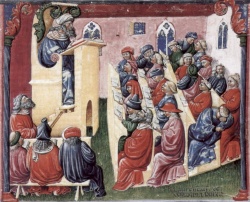 |
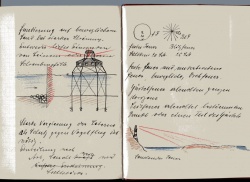 |

|
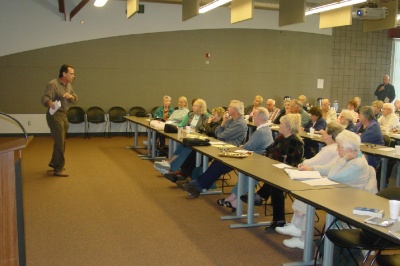 |
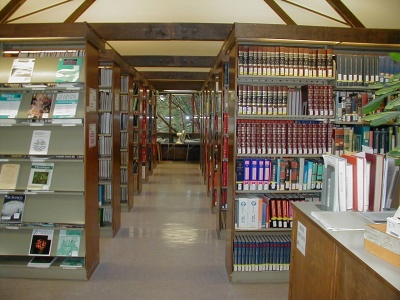
|
Verschwimmen
| [<flashmp3>http://131.130.46.67/wiki_stuff/cp8.mp3</flashmp3> | Vorlesungsmaterial | Transkription] | Weiterentwicklung |
Bruchstellen
| 200|180</videoflash> | Schreiben: Perspektiven der Philosophie heute | Mixen: Verfassung und Verfassungsvertrag |
Orientierungspunkte
Gesang
Ilias, 2.Buch 494 ff
Führer war den Böoten Peneleos, Leïtos Führer, Arkesilaos zugleich, und Klonios, samt Prothoenor. Alle, die Hyrie rings, und die felsige Aulis bewohnten, Schönos auch, und Skolos, und weit die Höhn Eteonos, Dann Thespeia, und Gräa, und weit die Aun Mykalessos; Auch die Harma umwohnten, Eilesion auch, und Erythrä, Auch die Eleon sich, und Peteon bauten, und Hyle, Rings Okalea dann, und Medeons prangende Gassen, Kopä, samt Eutresis, und Thisbe, flatternd von Tauben; Die Koroneia umher, und die Grasgefild' Haliartos, Die Platäa gebaut, und die in Glissas gewohnet, Die umher Hypothebe bewohnt in prangenden Häusern, Auch Onchestos lieblichen Hain um den Tempel Poseidons; Die dann Arne bewohnt voll Weinhöhn, auch die Mideia, Auch die heilige Nissa, und fern Anthedon die Grenzstadt: Diese zogen daher in fünfzig Schiffen, und jedes Trug der böotischen Jugend erlesene hundert und zwanzig. Die in Orchomenos wohnten, der Minyer, und in Aspledon, Führt' Askalaphos an, und Ialmenos, Söhne des Ares, Aus der Astyoche Schoß: in der Burg des azeidischen Aktors Stieg sie einst in den Söller empor, die schüchterne Jungfrau, Hin zum gewaltigen Ares, und sank in geheimer Umarmung. Diese trug ein Geschwader von dreißig gebogenen Schiffen.
Pirron und Knapp: Camping
<flashmp3>http://131.130.46.67/wiki_stuff/camping.mp3</flashmp3>
Intertextualität
Sehr geehrte Lehrgangsleitung, mit großen Interesse habe ich die Ankündigung zweier neuer Universitätslehrgänge gelesen: * Leading at the Edge - Schneidige Führung * Systemisch Führen in Unternehmen und Institutionen mit öffentlichen Aufgaben http://www.postgraduatecenter.at/lehrgaenge/management-wirtschaft/ Sie haben damit ganz im Sinn von Frau Bundesministerin Karl strategische neue Forschungsfelder erschlossen, in welchen die Universitäten verstärkt Exzellenz entwickeln können. Die Aufgabe, die sich heute für Führungskräfte stellt, ist Menschen von einem Flussufer zum anderen zu bringen. Systemisch führen heißt, Wege finden. Zukunftsorientierte, nachhaltige Führung gehört zu den wichtigsten Aufgaben von Organisationen in einer komplexen und globalen Welt. Empathie und Mitgefühl sowie eine profunde Kenntnis der neuronalen und biologischen Grundlagen affektiver und kognitiver Informationsverarbeitung sind unerlässlich, um erfolgskritisch in inter- und überorganisationalen Zusammenhängen, Beziehungen und Systemen denken und handeln zu können. Darum bewerbe ich mich für eines der von Ihnen ausgeschriebenen Halbstipendien im zweiten angebotenen Lehrgang, zumal die Kosten des ersten mit 14.500.- EUR (für 1 Jahr) über meinen Verhältnissen liegen. Für den Lehrgang "Schneidige Führung" hätten Sie sicher keinen geeigneteren Vortragenden finden können, als Georg Winckler. Es ist Ihnen aber darüber hinaus auch gelungen, namhafte Kolleginnen (m/w), die bisher eher mit Kritik an der "Ökonomisierung" der Wissenschaft bekannt geworden sind, für Ihr Vorhaben zu gewinnen. Dass Sie den Senat der Universität Wien, der für Universitätslehrgänge mit Master-Abschluss zuständig ist, durch die Verleihung eines "Zertifikats" nicht einschalten mussten, ist ein kluger Schachzug. In diesem Gremium gab es vereinzelt Kritik daran, dass sich die Universität ohne Rücksprache mit den Fakultäten auf die Entwicklung teurer Exklusivprogramme verlegt. Das Executive Programm der Universität Wien eröffnet, dessen bin ich mir sicher, einen innovativen Reflexionsraum für TopmanagerInnen. Das ist schon dadurch gewährleistet, dass der Leiter des Postgraduate Centers sich selbst zum Leiter des Lehrgangs und zu einem seiner Vortragenden gemacht hat. Reflexiver kann man es gar nicht machen. Sie wollen einen Beitrag dazu leisten, im Denken wie im Handeln "out of the box" zu kommen. Und wirklich, Ihr Angebot ist zum aus der Haut fahren. h.h.
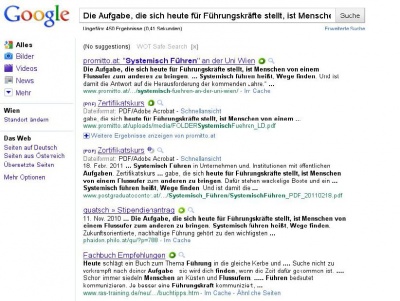 |
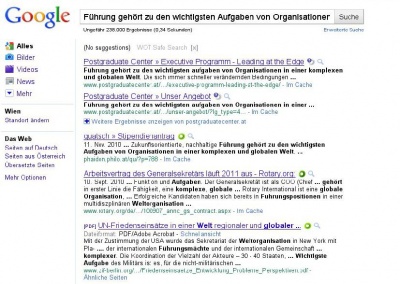
|
Open Access
Klaus Thörner
“Der ganze Südosten ist unser Hinterland”. Deutsche Südosteuropapläne von 1840 bis 1945
November 2008, 580 Seiten, 38,00 €, ISBN: 978-3-924627-84-3
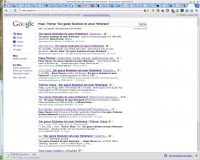 |
 |
 |
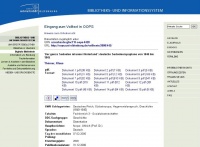
|
